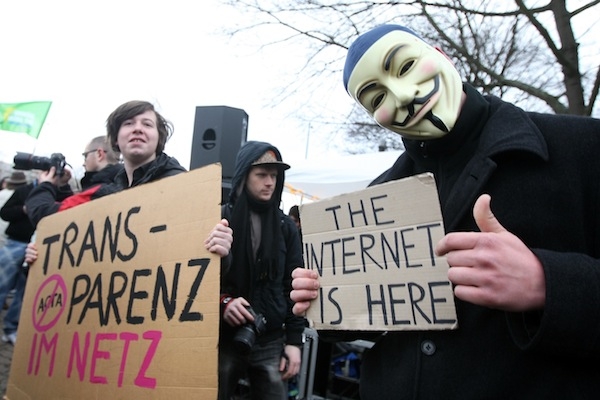A speech earlier this week by unmasked-spy Jonathan Evans has put the threat of cybercrime back into the national consciousness. The MI5 director general spoke at Mansion House earlier in the week to warn of ‘real damage’ caused online — highlighting one London business which suffered a £800 million loss following an attack. He stressed the need to introduce snooping powers:
‘It would be extraordinary and self-defeating if terrorists and criminals were able to adopt new technologies in order to facilitate their activities while the law enforcement and security agencies were not permitted to keep pace with those same technological changes,’ he said.
In tomorrow’s magazine, we have a special supplement dedicated to cybercrime and potential strategies to tackle it. Minister for Security James Brokenshire agrees with much of what Evans said on the ‘astonishing’ number of the cyber attacks we are now seeing:
‘Cybercrime might sound like some sort of sinister, underground horror that affects only intelligence agencies, foreign governments and defence contractors. But, actually, it’s far more prevalent than that. Many incidents of credit card fraud, every ‘phishing’ email asking for you bank account details, every case of online identity theft — all are examples of cybercrime.’
But the government and security services place different emphasis on who should lead the way. Brokenshire believes that the best way to address these concerns is with a government lead:
‘As the minister responsible for dealing with cybercrime, I believe the threat is now so serious that there should be a national centre of expertise. We are creating a new National Cyber Crime Unit for exactly that purpose.’
While the MI5 director said in his speech that success in combatting in cybercrime is only achievable ‘if it engages not just the government but also the private sector.‘ He did concede that the key work is done at GCHQ but insisted that: ‘we are all potential or actual victims of cyber attacks and so the knowledge that we all have of the vulnerabilities and losses our own systems have experienced is relevant to finding the right solution.’
While the Department of Business aims to make the UK ‘one of the most secure places in the world to do business in cyberspace,’ it acknowledges that this cannot be done by the public sector alone. It has dedicated a section of its website to the importance of businesses protecting their own resources — or being what it terms ‘cyber aware ‘. Whether the Home Office likes it or not, fighting online crime successfully can only be done if we are, as the saying goes, in this together.






Comments